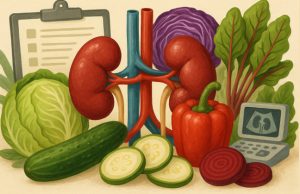Ingredients:
- 10 mini bananas (or large-sized cut into smaller pieces)
- 1/4 cup of plant-based milk (such as almond, soy, or oat)
- 2 tbsp of ground flax seeds
- 1/2 cup of all-purpose flour ( or gluten-free flour if needed)
- 1/4 tsp of baking powder
- 1/4 tsp of salt
- 1/2 cup of breadcrumbs (or gluten-free breadcrumbs if needed)
- Oil for frying
Instructions:
- Peel the bananas and set aside.
- In a small bowl, whisk together the plant-based milk and flax seeds to make a flax egg. Let it sit for about 10 minutes until thickened. In another bowl, whisk together the flour, baking powder, and salt. Place the breadcrumbs in a shallow dish or plate.
- Dip each banana in the flax egg mixture, then coat with the flour mixture, then dip again in the flax egg, and finally coat with the breadcrumbs. Repeat with the remaining bananas.
- Heat some oil in a large skillet over medium-high heat. Fry the bananas in batches until golden and crisp on all sides, turning occasionally. Drain on paper towels and serve hot or cold. Extra information for gluten-free recipe:
- To make this recipe gluten-free, you need to use gluten-free flour and gluten-free breadcrumbs.
- You can either buy them from a store or make your own at home. To make your own gluten-free flour, you can use a blend of rice flour, potato starch, tapioca starch, and xanthan gum.
- You can find a recipe for homemade gluten-free flour here. To make your own gluten-free breadcrumbs, you can use gluten-free bread, crackers, or cereal. You can find a recipe for homemade gluten-free breadcrumbs here.
A vegan diet has numerous benefits, and here are some important points
Health Benefits:
Nutrient-Rich: A well-balanced vegan diet can provide all the necessary nutrients, including vitamins, minerals, and fiber, promoting overall health.
Heart Health: Studies suggest that a vegan diet may lower the risk of heart disease by reducing cholesterol levels and blood pressure.
Weight Management: Many people find that adopting a vegan diet helps with weight management due to lower calorie intake and increased consumption of whole, plant-based foods.
Environmental Impact:
Reduced Carbon Footprint: Animal agriculture is a significant contributor to greenhouse gas emissions. A vegan diet helps reduce your carbon footprint and combat climate change.
Conservation of Resources: Producing plant-based foods generally requires fewer natural resources like water and land compared to animal farming, contributing to sustainable resource use.

Ethical Considerations:
Animal Welfare: Choosing a vegan lifestyle aligns with ethical considerations, promoting the well-being of animals and avoiding their exploitation for food.
Reduced Animal Suffering: By opting for plant-based alternatives, individuals contribute to the reduction of animal suffering associated with factory farming and other industrial practices.
Diverse Culinary Options:
Creative Cooking: Adopting a vegan diet encourages exploration of diverse and creative cooking techniques, using a wide range of fruits, vegetables, grains, nuts, and seeds.
Global Cuisine: Veganism opens up the opportunity to explore and appreciate a variety of global cuisines that are naturally plant-based, fostering a rich and flavorful culinary experience.




















